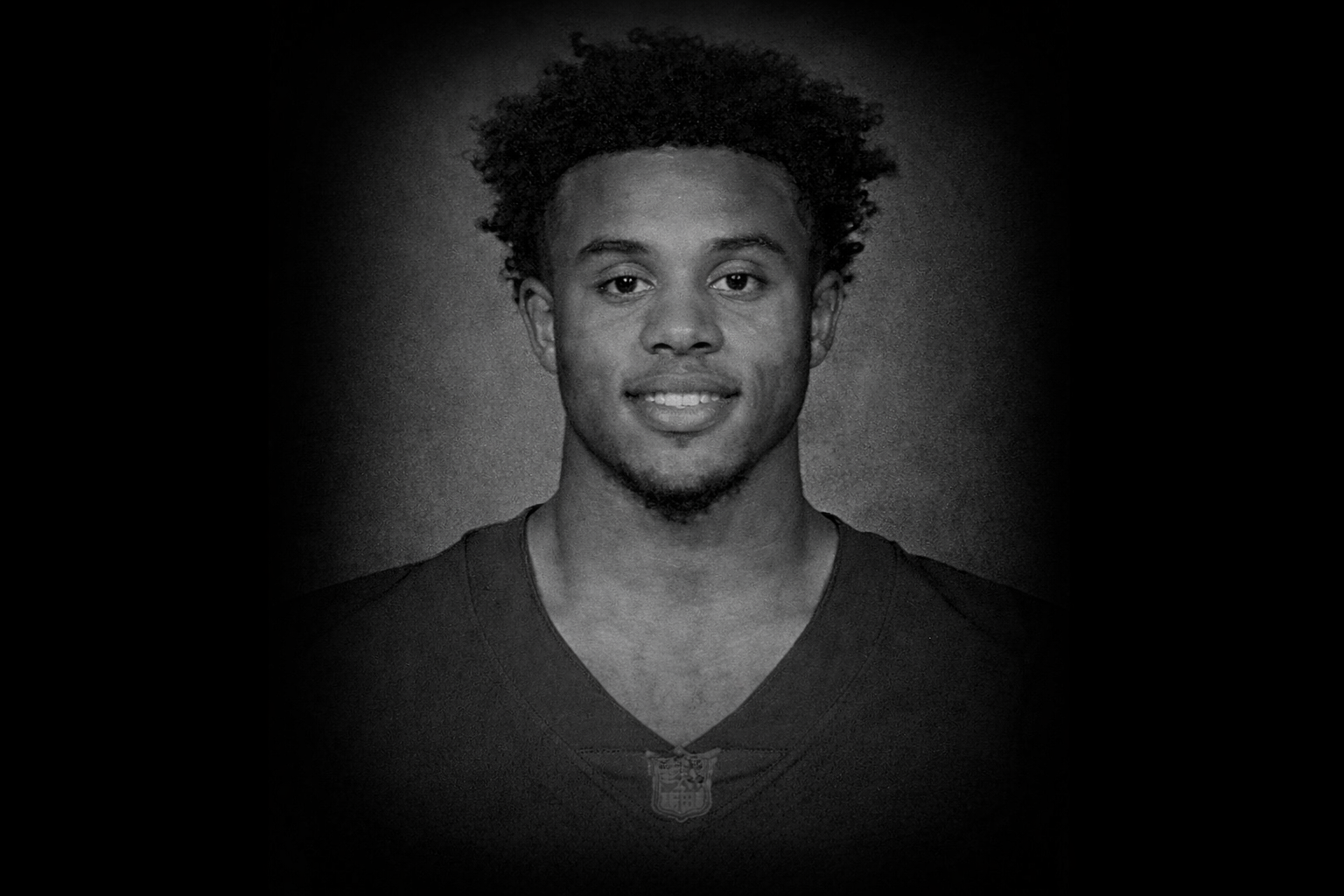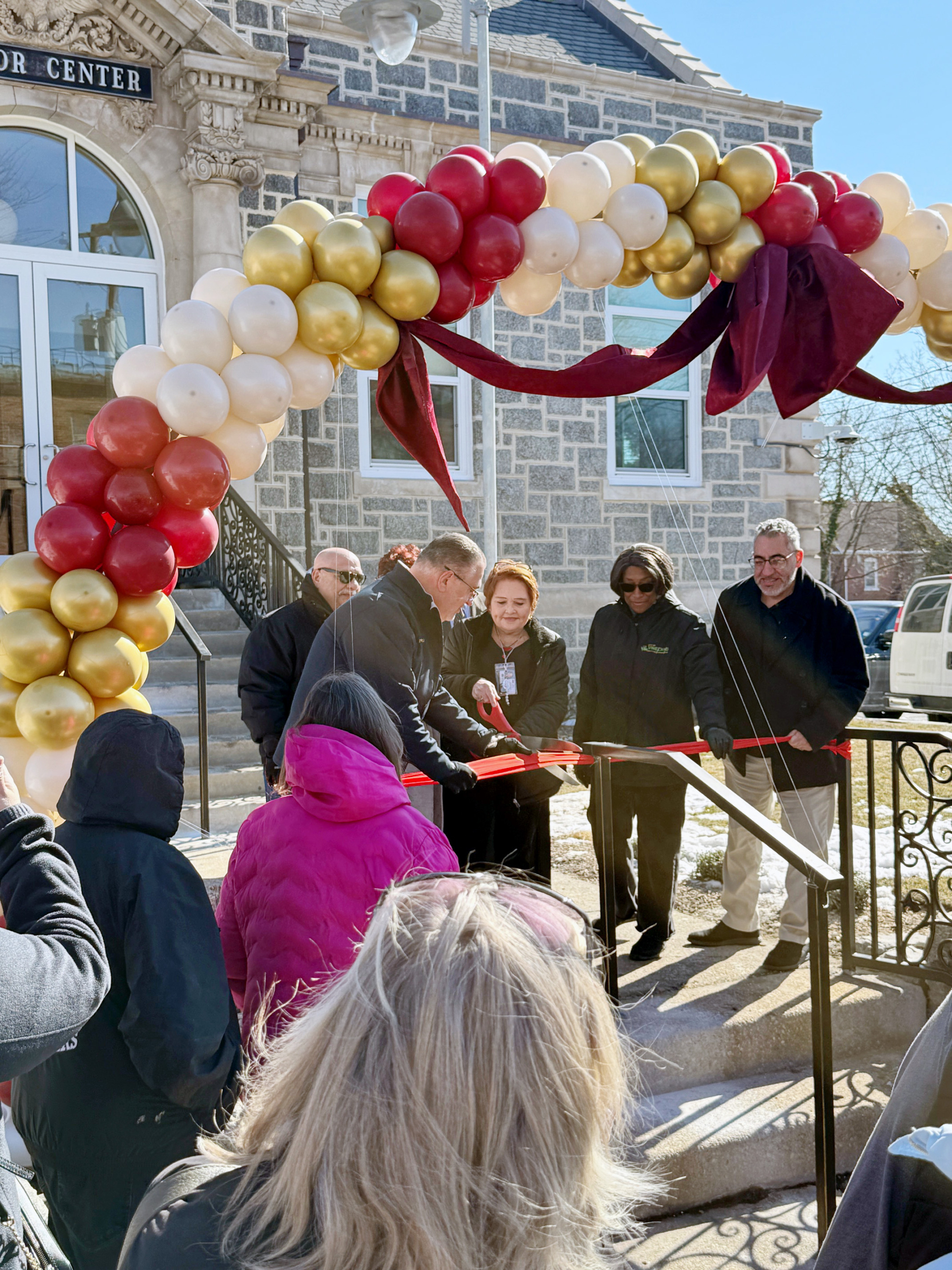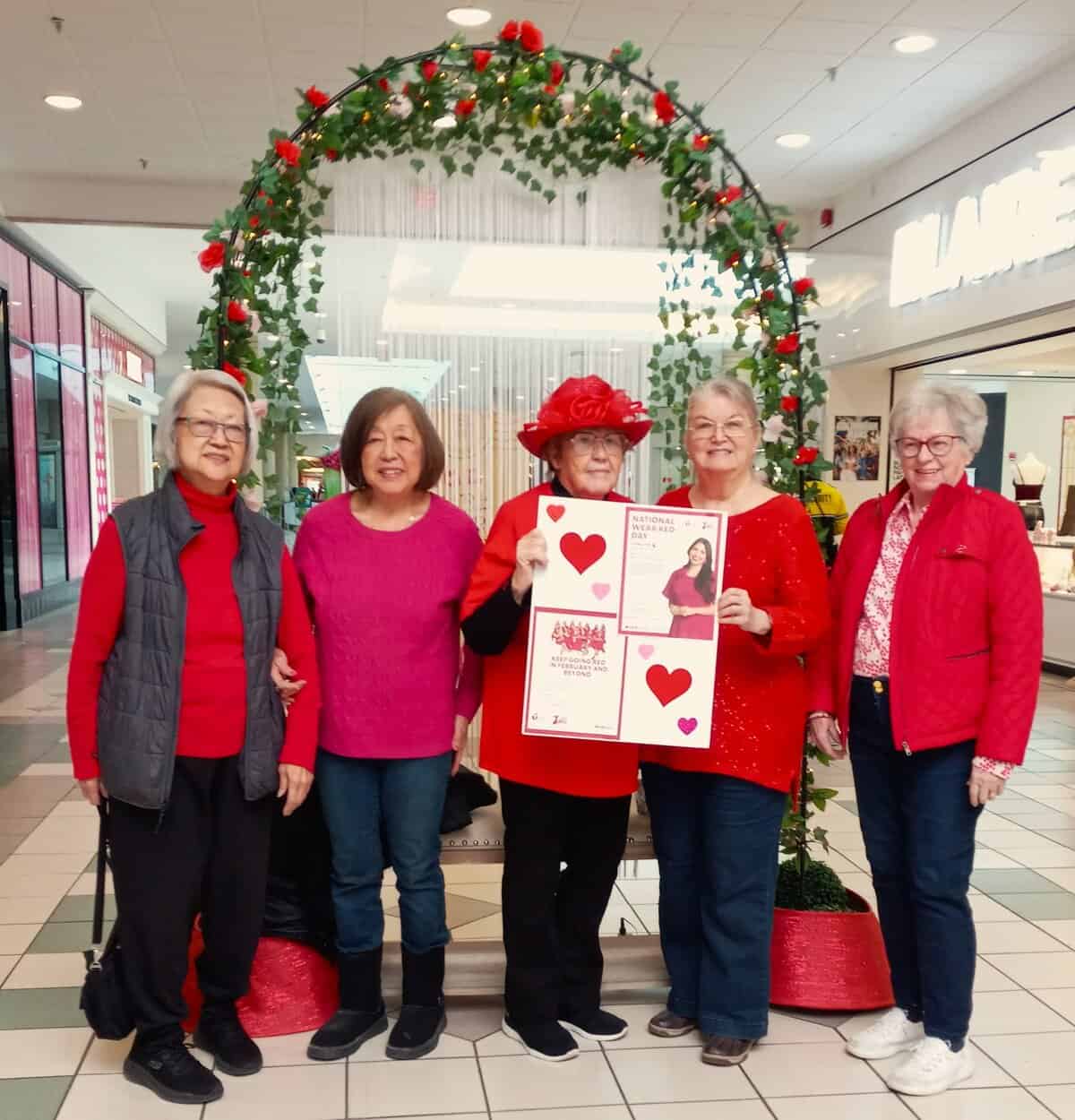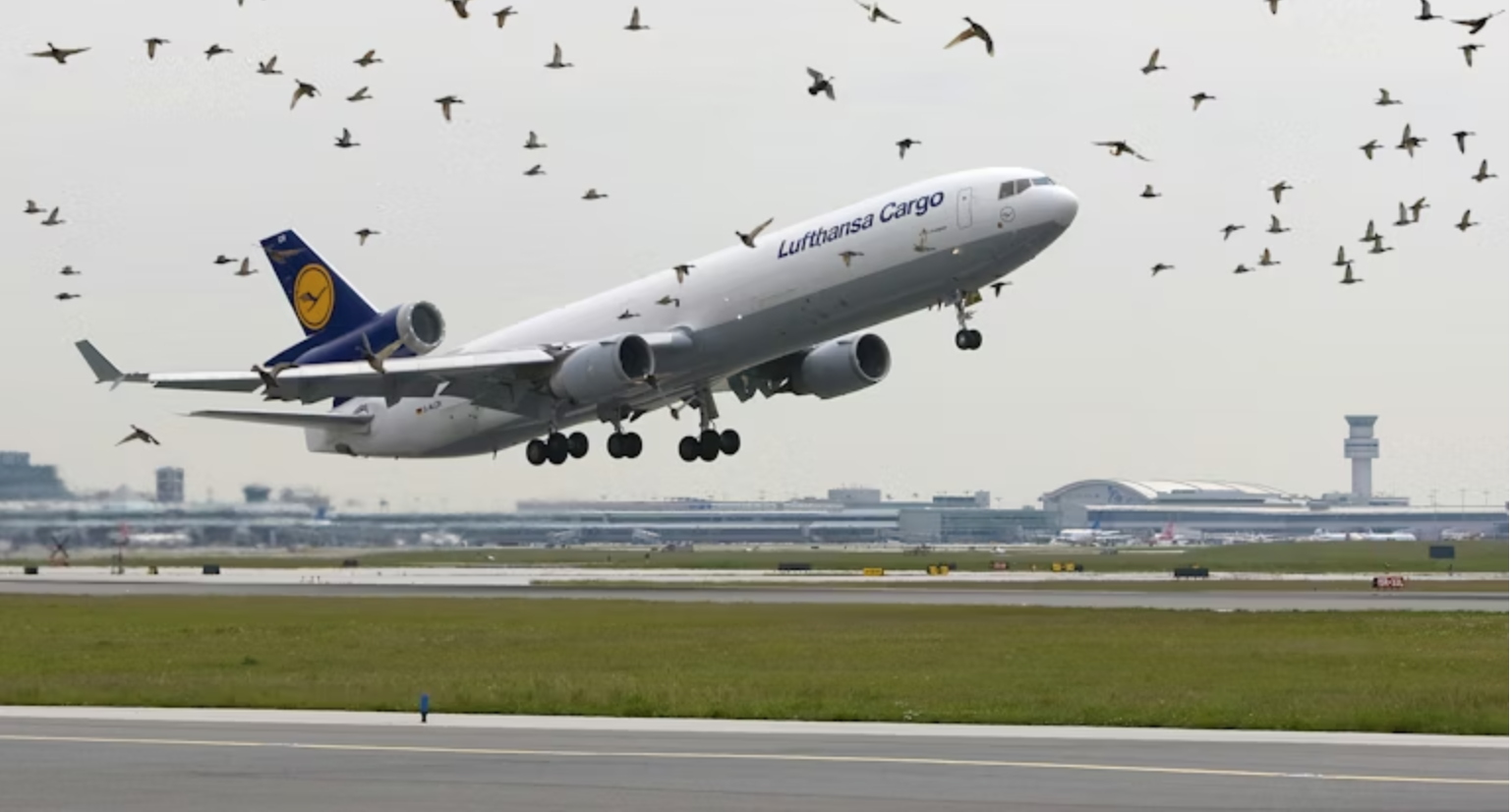RCSJ Student Overcomes Adversity, Earns Degree

Rowan College of South Jersey (RCSJ) students are cut from a different cloth; when adversity attempts to impede their progress, they have proven time and again they will take extraordinary steps to achieve success. You can add Kareem Rutledge, Jr. to this ever-expanding list of courageous individuals. After suffering from a traumatic brain injury five years ago, there was no guarantee he would even be alive today.
On the morning of Sunday, April 1, 2018, Rutledge was at his mom Tyeesha’s house in Delaware preparing for an Easter church service. He never made it there.
“My mom found me at the bottom of the stairs with blood dripping out of my ears and I was seizing, unconscious,” Rutledge recalled. “They don’t know if I went up and fell back or if I just stood up too fast and passed out. ”
Before that fateful moment, Rutledge, a Swedesboro resident, was an honors student at Kingsway Regional High School in Gloucester County and was active in sports. He played basketball and football, and ran track during his high school career.
Rutledge’s goal was to become a chemical engineer and he’d already received several scholarships to attend the University of Delaware, ranked one of the top engineering schools in the country. “I loved chemistry” he said. “It made sense [to go there].”
The brain injury put a sudden halt to those plans. At Christiana Hospital. the doctors performed a cranioplasty as well as a tracheotomy in hopes of keeping him alive.
“While in the hospital, I had a small stroke,” Rutledge said. “They had to take the top of my skull off to relieve the pressure [on my brain]. I was in a medically induced coma for a while. I could have died in surgery.”
“It was a blur,” he continued. “My mom told me stories. Since I wasn’t able to talk, she had this little writing pad to write on. She said she would try to play tic tac toe with me, and I just drew the line—and the line, like, just kept going.”
“It was like I wasn’t there mentally,” he said. “That broke her down.”
Rutledge began the arduous journey of relearning how to walk, talk, and eat with the help of physical therapy at Jefferson Moss-Magee Rehabilitation Hospital in Philadelphia.
“During the whole inpatient time … I was in a wheelchair,” said Rutledge. “I couldn’t even sit up. I would just fall over. And for food, I couldn’t swallow. I was eating puree for a long period. Then after puree I could do solids.”
Relearning how to walk was a considerable challenge: “I had leg braces and ankle foot orthotics. They went basically from my hip all the way down to my leg and under my foot. Then they used this machine called the Andago—it basically walked for me.”
Rutledge’s family leaned on their faith in God, which helped them establish a sturdy support system for him. His stepmom was a particularly powerful force in helping him to stand on his own two feet again.
According to Rutledge, physical therapy included many intense, excruciating hours attempting to walk using parallel bars for support; his stepmom constantly implored him to summon his inner strength. Her words of encouragement ultimately sunk in.
When asked what it was like relearning how to talk: “That was weird because I love to talk,” Rutledge chuckled. “I had to take speech therapy.”
His healing treatments included cognitive therapy and art therapy. “Art therapy was a godsend,” Rutledge proclaimed. “I already loved art. There are no rules. You just do it. No boundaries to it.”
While Rutledge was in rehab and unable to attend his high school graduation, dozens of his Kingsway classmates travelled from South Jersey to Moss Rehab and brought the graduation to him. “I felt great and excited to see my friends,” he said.
According to Rutledge, after 40 days and 40 nights of rehab, he was able to go home. “I felt like if God allowed me to get this far, I knew that He’d allow me to do even greater things.”
By 2020, Rutledge had regained most of his verbal and ambulatory abilities. His father and stepmom gave him a choice—get a job or go to college. He chose the latter.
“It seemed most realistic because that’s what I was going to do prior to the accident,” Rutledge said.
However, his dream of attending the University of Delaware had faded. He and his family looked for a college that would best suit his needs and aspirations. They concluded RCSJ–Cumberland was that school.
“The college’s disability services were off the chain,” Rutledge declared. “Miss Vicente … helped us out a lot. That’s basically why I ended up going there. Even though it was so far—I had to take Access Link to get to one class that I took on campus.”
Meredith Vicente, senior director of Student Accessibility and Support Services, said that Rutledge, like other students with disabilities at RCSJ, had access to several accommodations to help him succeed as a student. These included testing in a distraction-reduced environment, use of text-to-speech and dictation software, flexibility with attendance policy and assignment due dates, and note taking assistance.
“Kareem also could request individualized tutoring, academic coaching, and audio versions of his textbooks,” Vicente said.
Rutledge received scholarship money and also gives props to the New Jersey Division of Vocational Rehabilitation Services for helping to pay his tuition.
“If it wasn’t for disability services, I don’t know where I would have ended up. The coaching was just something no other colleges have,” said Rutledge. “And the tutoring—just having that readily available. And then the accommodations. My [professors] helped out a lot. It’s like they meet you where you’re at.”
During his time at RCSJ, he became president of the Faith Fellowship Club (FFC). “It felt great because I felt like it was almost like my calling,” Rutledge shared. The position gave him a chance to “be a leader and influence other people and … to see God move throughout the club and [on] the campus in general.”
“Kareem was an outstanding president for the club,” said Michele Zakian, advisor, FFC, RCSJ–Cumberland. “He became the FFC president during the Covid pandemic, which is fitting because he has a transitional leadership style. After Kareem became president, he used his personal experiences and knowledge to inspire the club to expand our focus to include more faith enrichment and expression opportunities for current members.”
On May 11, Rutledge, along with more than 300 of his fellow classmates, participated in RCSJ–Cumberland’s 4th Annual Commencement Ceremony. He graduated with a 3.3 GPA from the college’s Liberal Arts General Studies program.
Five years after his near-death experience, Rutledge’s grit, determination, perseverance, and faith in a higher power culminated in that magical moment.
“It takes a lot of persistence and hard work for anyone to graduate and when you have disabilities it is that much harder,” Vicente said. “Kareem advocated for himself well, used the resources and support available to him, and was a student leader on campus.”
“Honestly, it was a miracle,” said Rutledge. “I wasn’t on this road at all. It’s like a whole bunch of curveballs and stuff. But the goal was the same as when I graduated high school. It’s just another step and I’m excited for the next steps to come.”
Rutledge’s plans consist of majoring in Human Services at Southeastern University, running a 5K race, becoming a motivational speaker, and sharing his story in hopes of inspiring others to never give up on their dreams no matter what obstacles are placed in their paths.
“I was in a wheelchair. People don’t just jump out of wheelchairs and just start walking. God did it all. That’s a big piece of it. That’s where a lot of motivation came from,” Rutledge explained.
“I’m supposed to show what God did through me and show people what God can do. He still does miracles and I’m going to improve,” he said.







